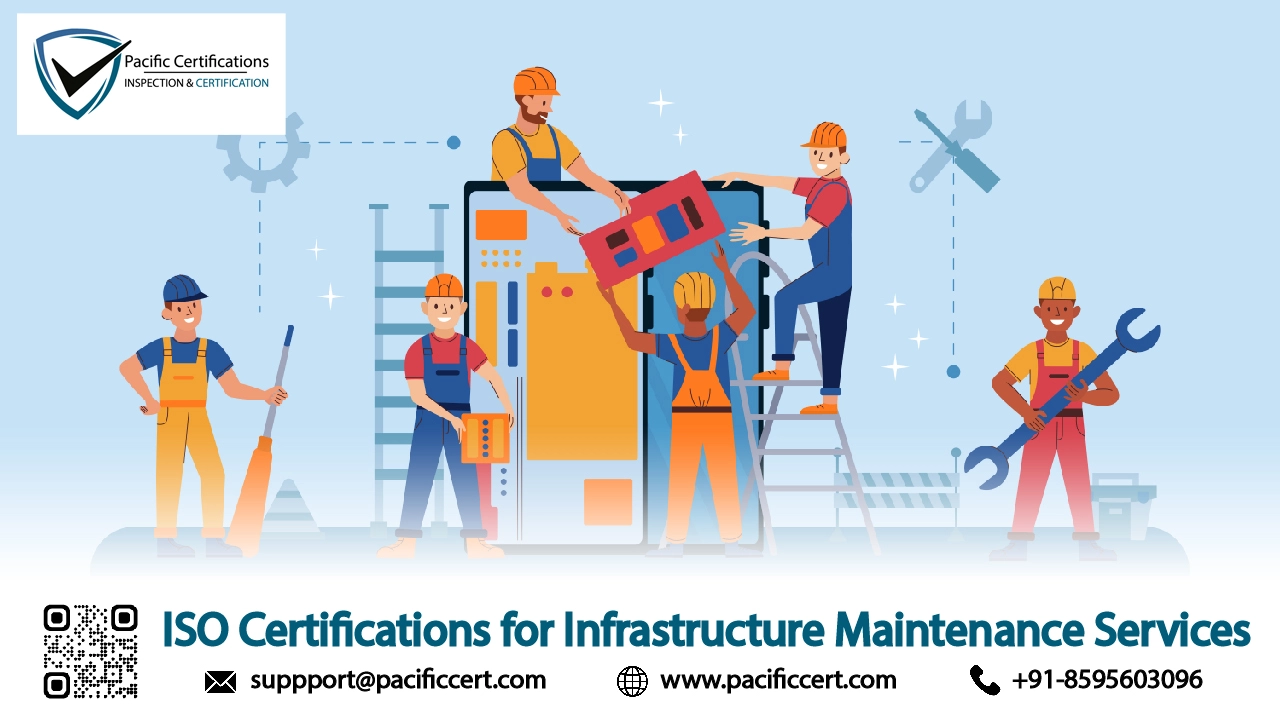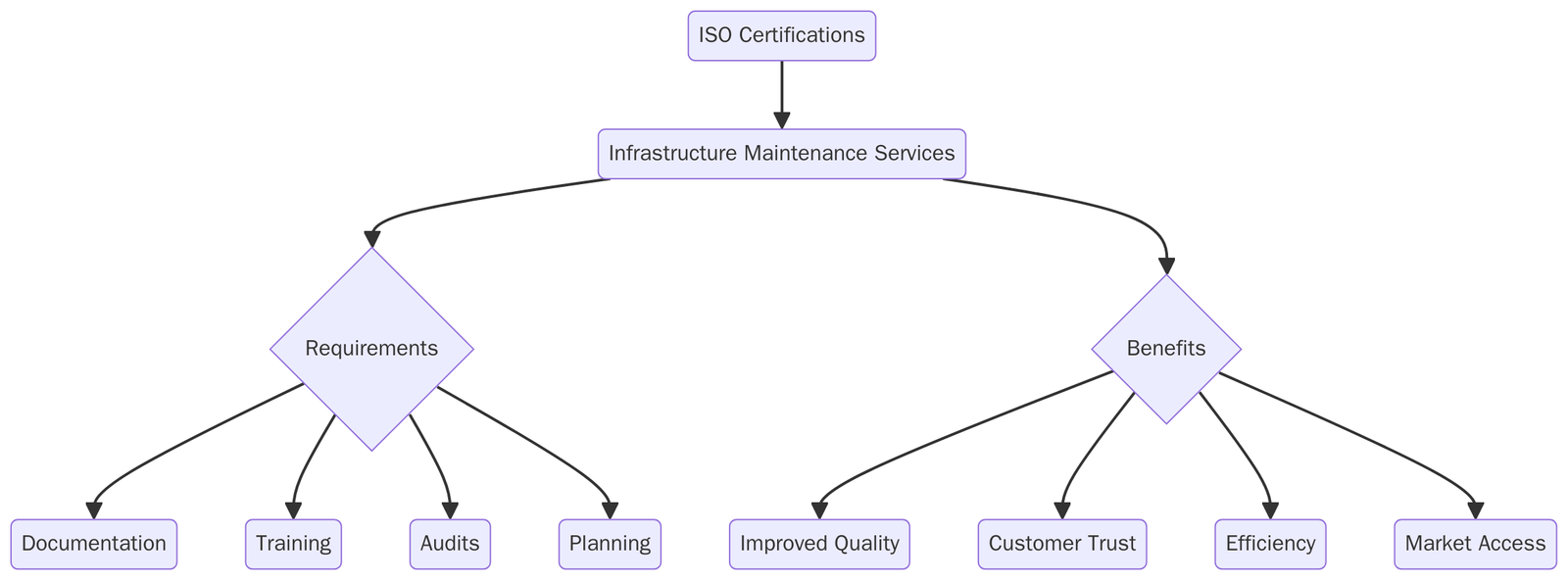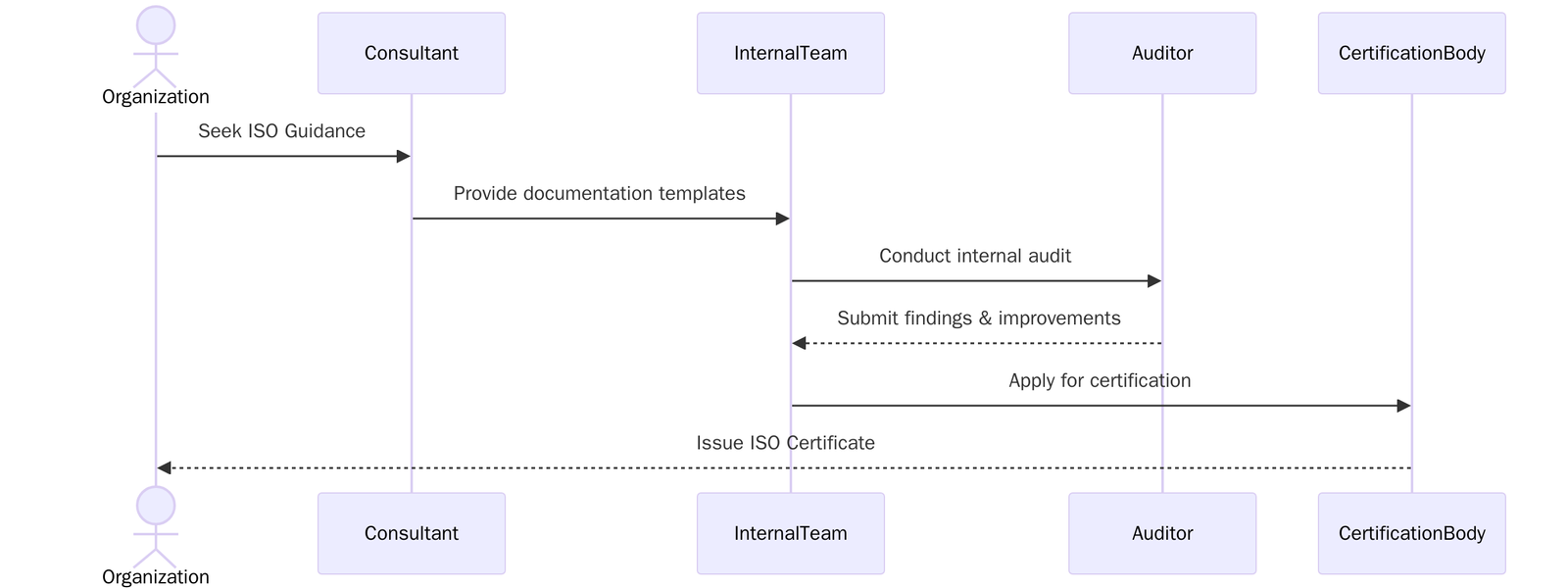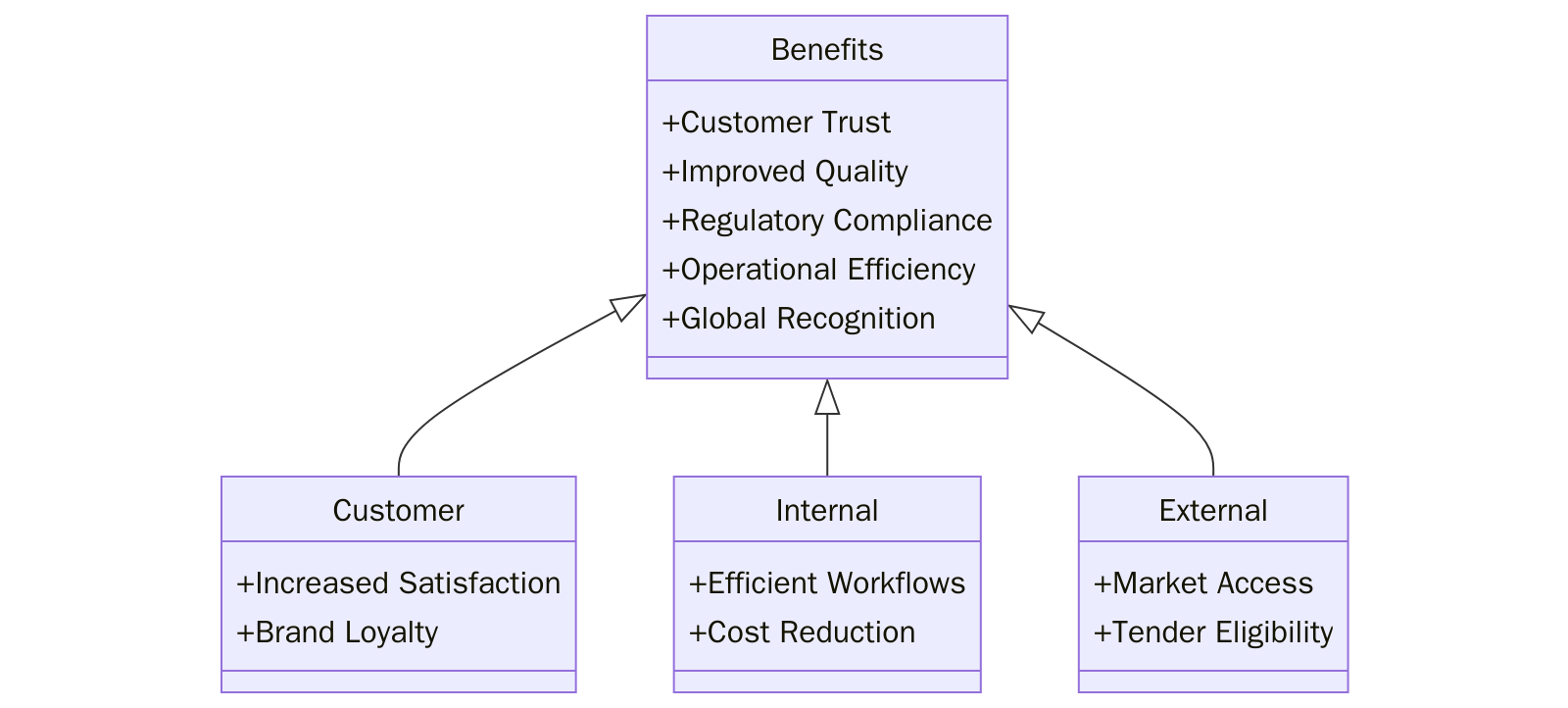Introduction to ISO Certifications for Infrastructure Maintenance Services

As cities expand and industrial facilities become more dependent on uninterrupted infrastructure, service providers in maintenance must meet consistent quality benchmarks. One trusted way to show capability is through ISO Certifications for Infrastructure Maintenance Services. These certifications help firms present their systems and controls with internationally accepted quality assurance.
From highways and tunnels to utility pipelines and rail assets, maintenance companies are expected to deliver performance that is safe, reliable, and traceable. ISO standards offer a practical approach to building process discipline and service quality that can withstand both operational audits and public scrutiny.
Looking to get ISO certified for your maintenance service business? At Pacific Cert, we provide audit and certification services across industries. Email: support@pacificcert.com
Applicable ISO Standards for Infrastructure Maintenance Services
Infrastructure maintenance spans physical work, planning systems, and risk control. Below are key ISO standards used in this sector:

ISO 9001: Quality Management Systems
This is the core standard used across industries. It focuses on process consistency, customer satisfaction, and performance measurement.
ISO 45001: Occupational Health and Safety Management
This helps reduce incidents during fieldwork. It is especially useful for teams working in confined spaces, roadside environments, or active industrial zones.
ISO 14001: Environmental Management Systems
For projects involving material disposal, energy use, or emissions, this certification supports environmental performance tracking.
ISO 50001: Energy Management Systems
Used in facilities and energy-heavy operations, this standard supports better control over energy costs and planning.
ISO 41001: Facility Management Systems
This helps align facility-related services, including HVAC, cleaning, and inspections, under a formal management system.
ISO/IEC 27001: Information Security Management Systems
Maintenance schedules, asset data, and real-time monitoring are increasingly digital. This certification protects sensitive information and digital assets.
Requirements of ISO Certifications for Infrastructure Maintenance Services
Before applying for certification, companies providing Infrastructure Maintenance Services should review technical and procedural needs based on the ISO standard they choose. Some of the key requirements include:

1. ISO 9001 – Quality Management Requirements
- Identify customer needs and align services accordingly
- Document internal procedures and control workflows
- Define roles and maintain training records for all employees
- Implement audits and periodic management reviews
- Track service outcomes and pursue improvement opportunities
2. ISO 45001 – Health and Safety Requirements
- Perform hazard identification across all work environments
- Create a risk control and emergency preparedness plan
- Conduct training and ensure protective equipment availability
- Monitor health incidents and near-miss reporting systems
- Involve staff in safety planning and review processes
3. ISO 14001 – Environmental Management Requirements
- Identify key environmental impacts such as noise, emissions, or waste
- Track usage of fuel, chemicals, and raw materials
- Prepare legal compliance checklists and maintain records
- Set and review goals to reduce negative environmental outcomes
- Maintain awareness training for field and office teams
4. ISO 50001 – Energy Management Requirements
- Collect data on energy usage by category or system
- Set energy targets and maintain performance indicators
- Use monitoring tools to track real-time consumption
- Evaluate cost-benefit of energy-saving upgrades
- Include energy review in broader business decisions
5. ISO 41001 – Facility Management Requirements
- Define scope of services such as HVAC, lighting, or pest control
- Link asset upkeep to building safety and usability
- Create service-level agreements and performance logs
- Integrate contractor and vendor management
- Provide structured reporting and escalation protocols
6. ISO/IEC 27001 – Information Security Requirements
- Classify and secure digital asset management systems
- Assign security roles and train staff in access protocols
- Maintain logging and alerts for critical system breaches
- Conduct regular security assessments
- Prepare a plan for continuity and data recovery
Benefits of ISO Certifications for Infrastructure Maintenance Services
Below are key outcomes companies can expect from certification:

- Improved consistency in how maintenance tasks are carried out and how quality benchmarks are maintained across various projects
- Reduced workplace incidents by having clear safety procedures that guide teams during field operations and high-risk tasks
- Lower energy consumption and financial waste through accurate tracking of equipment use, fuel, and other resource flows
- Increased eligibility for public tenders or government contracts where ISO certification is often a preferred or required condition
- Better collaboration between scheduling, logistics, field crews, and administrative units due to clearly defined system workflows
- Higher levels of client confidence because of third-party verification of your company’s ability to manage and maintain assets
- Simplified onboarding and staff training processes due to clearly documented roles, procedures, and system responsibilities
- More opportunities to secure long-term maintenance contracts where proven quality systems and safety measures are essential
Market Trends
The infrastructure maintenance sector is witnessing a significant shift toward digital transformation. Technologies like IoT, AI, and predictive maintenance are enhancing service efficiency. ISO standards, particularly ISO 55001 and ISO 50001, are evolving to incorporate digital advancements. Additionally, sustainability goals are driving the adoption of ISO 14001 and ISO 50001, as organizations seek to reduce carbon footprints and promote green infrastructure practices.
Training and Courses
Companies planning to train staff for ISO standards may consider these course formats:
- Internal Auditor Training – Covers how to conduct internal checks and prepare for external audits
- Lead Auditor Training – Prepares senior staff to lead ISO audits in-house or for clients
- Lead Implementer Training – Designed for teams setting up documentation and ISO-aligned systems
Pacific Certifications provides accredited training programs. If your organization is looking for ISO 9001, ISO 45001, or ISO 14001 training, our team is equipped to help you. Contact us at support@pacificcert.com
FAQs: ISO Certifications for Infrastructure Maintenance Services
Which ISO is most important for infrastructure maintenance?
ISO 9001 is the base standard. ISO 45001 and ISO 14001 are also key if you work on sites or handle hazardous waste.
Do I need to get all the standards?
Not necessarily, many companies begin with one or two certifications and expand as required.
Will I need to shut down during the audit?
No, audits are typically done while the business is running, and disruptions are minimal.
Does certification cover subcontractors?
Yes, if subcontractors are part of your workflow. You will need to show how they are managed under your systems.
How long is the ISO certificate valid?
Three years, with annual checks known as surveillance audits.
Ready to get ISO certified?
Contact Pacific Certifications to begin your certification journey today!
Suggested Certifications –
Read more: Pacific Blogs

Ready to get ISO 14001:2015 certified?
Contact Pacific Certifications to begin your certification journey today!
Suggested Certifications –
Read more: Pacific Blogs






